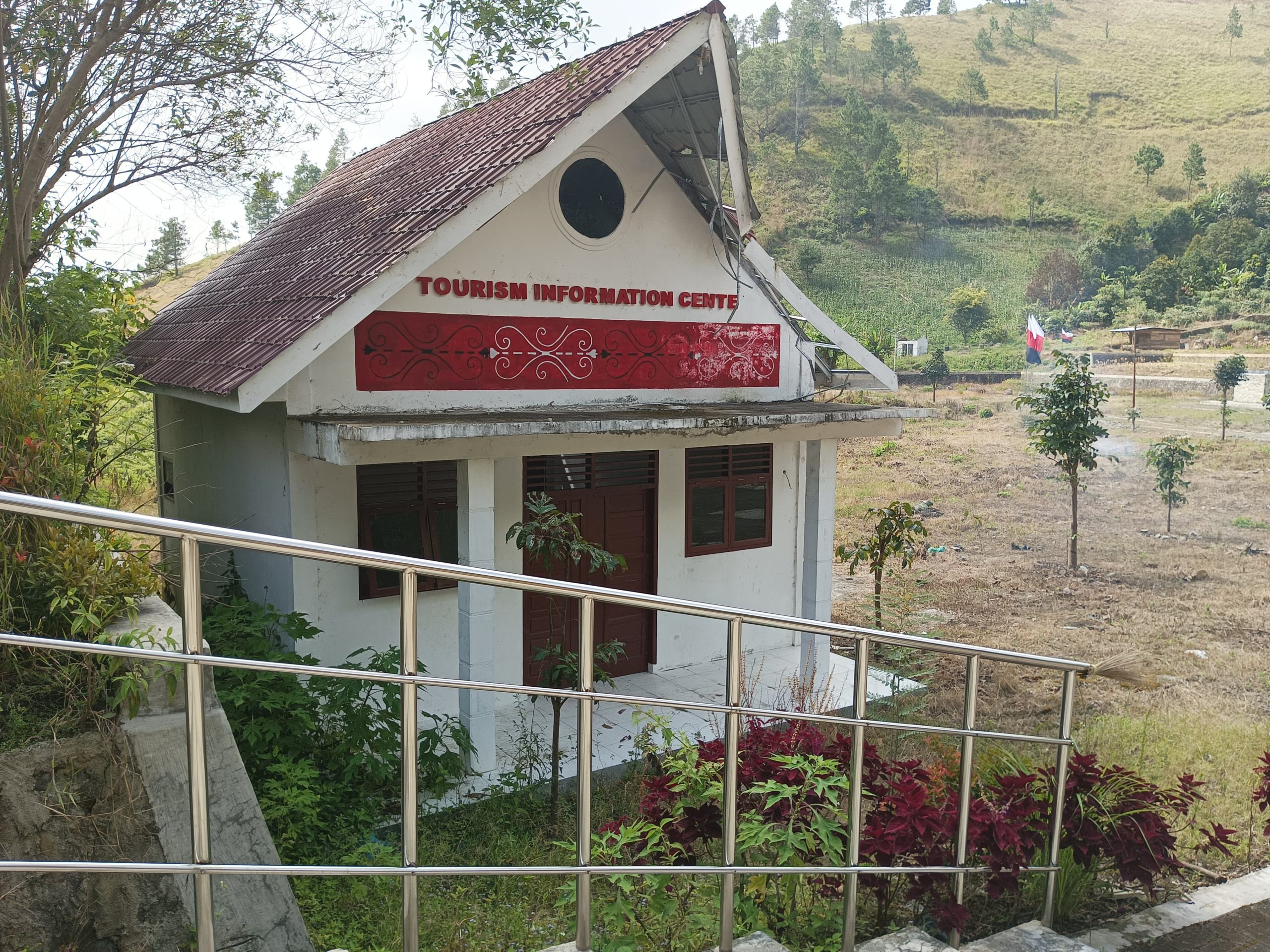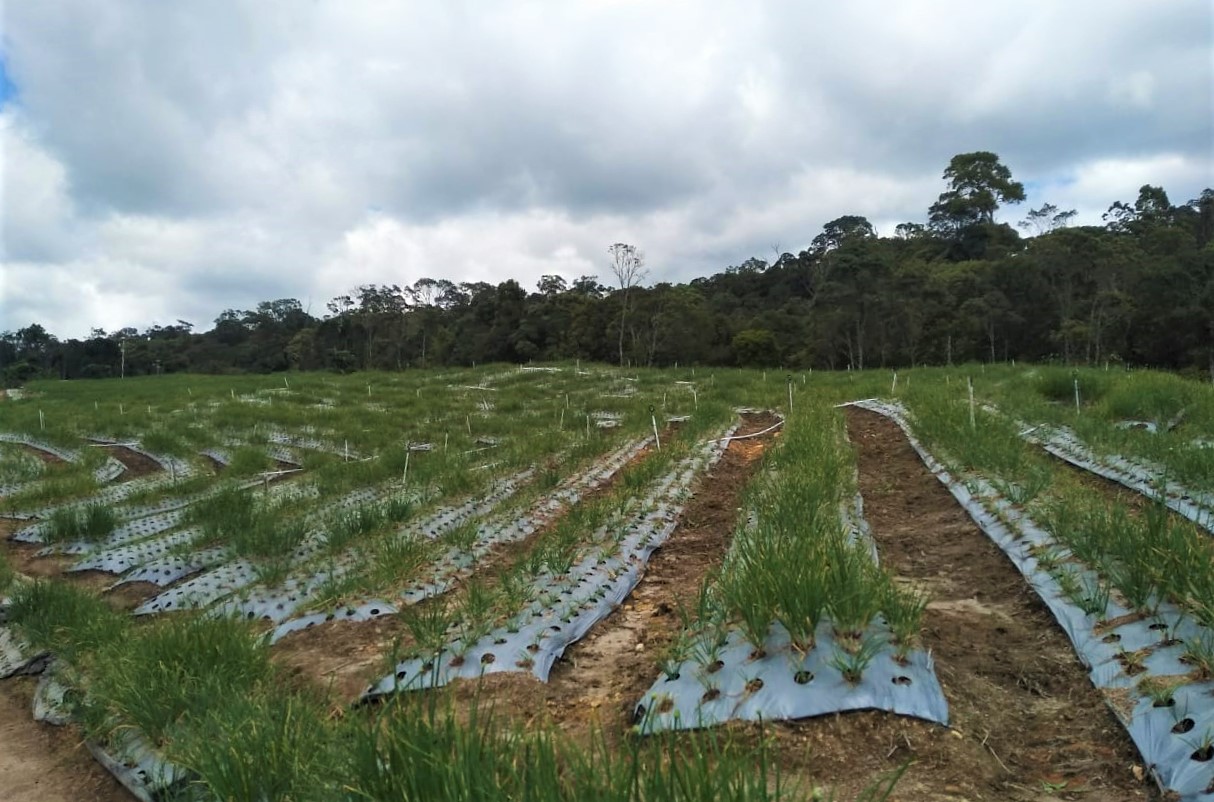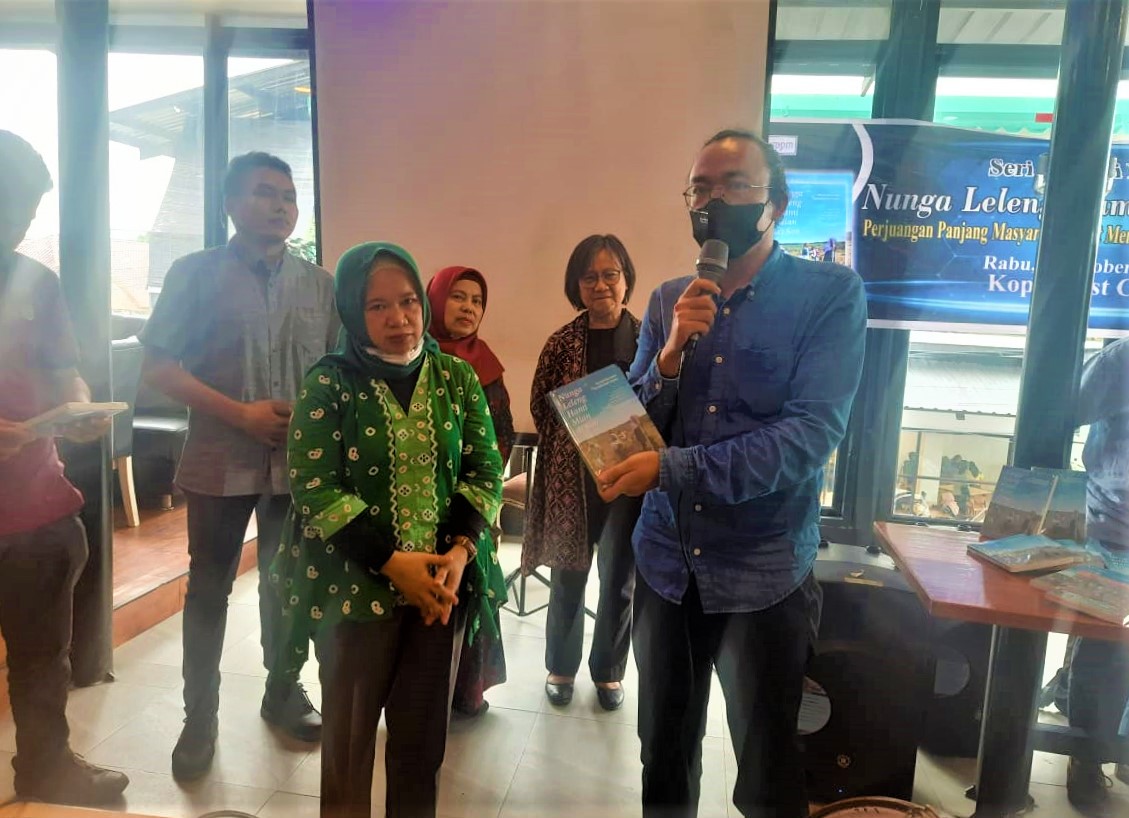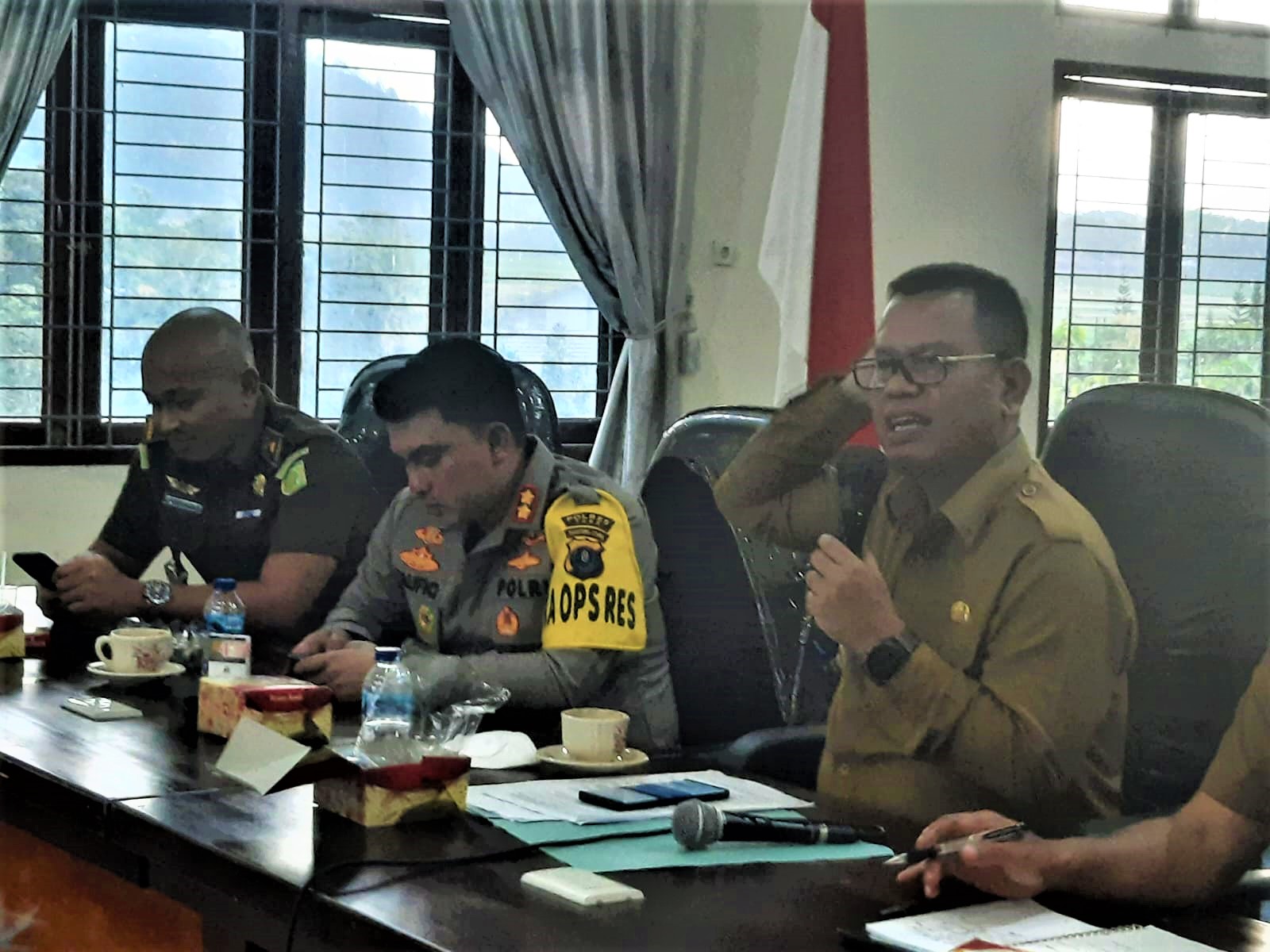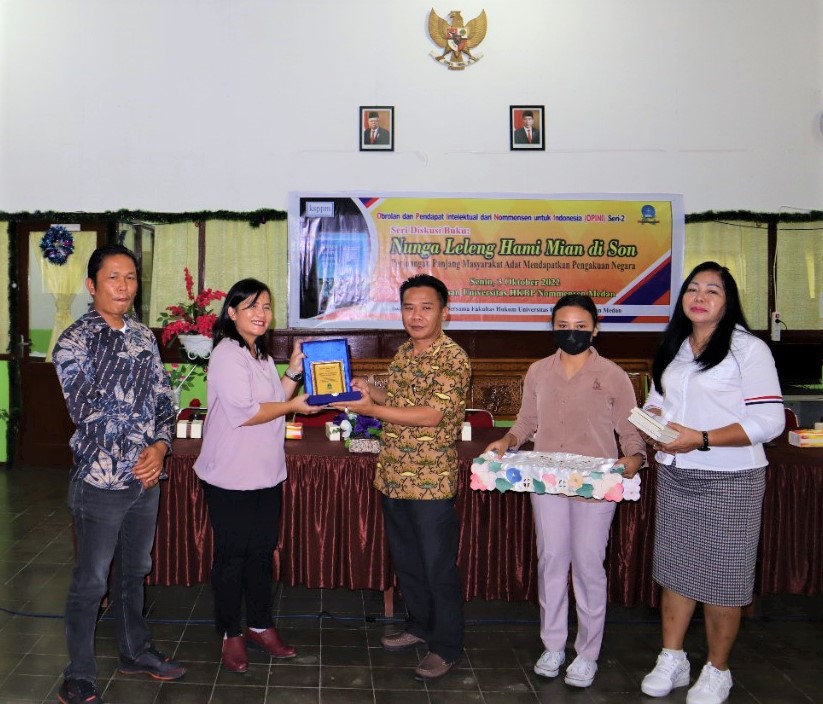On Tuesday, October 11, 2022. A giant banner reading “North Sumatra Women Against Deforestation” was unfurled in the customs territory of Huta Napa, Sipahutar District, North Tapanuli, North Sumatra. Not only the giant poster, hand banners containing the demands of indigenous peoples in Tano Batak so that their customary territories are excluded from the State Forest Area and the concession of PT Toba Pulp Lestari (TPL) was also echoed. This poster-spanning action was carried out as a form of protest against the slow process of resolving tenure and customary forest conflicts in Indonesia, including in Tano Batak.
Around 100 representatives of indigenous peoples from nine communities in North Tapanuli Regency and Toba Regency were present in the Huta Napa customary area. They are primarily victims of state policies that granted concession licenses to PT Toba Pulp Lestari (TPL), a pulp company owned by Sukanto Tanoto, which is a subsidiary of Royal Golden Eagle (RGE).
The presence of this company has not only resulted in the loss of living space for the Toba Batak community in Tapanuli but has also destroyed customary forests. One of them is Huta Napa, which is the customary territory of Op. Bolus Simanjuntak and Op. Ronggur Simanjuntak. The customary forests belonging to these two communities used to be frankincense and natural forests, but since the presence of this company, the indigenous people have lost their source of livelihood from frankincense sap.
The destruction of indigenous forests not only eliminates their source of livelihood but also destroys the local food system of farmers and indigenous peoples. The rivers that are the source of drinking water and irrigation are destroyed, dry in the dry season, and overflowing in the rainy season. The sustainability of rice fields as a source of food is threatened. Not only are the rice fields affected, but farmers also now have to struggle to maintain their fields, because animals from the forest such as monkeys, wild boars, and bears become pests for their agriculture in the fields.
Before the presence of PT TPL, they said their food needs were guaranteed every year from rice fields, fields, livestock, and incense. Unfortunately, now their sovereign food system is being destroyed by policies that do not favor farmers. The government in the past two years has intensively warned that the world is on the verge of a food crisis due to the pandemic and climate crisis.
Through the activities carried out in the customary forest, indigenous peoples, farmers, indigenous women, and indigenous youth called on the government not only to raise concerns but to seriously resolve current and future food problems. One of the solutions offered by indigenous peoples in Tano Batak is to fulfill the land rights of farmers and indigenous peoples in Tano Batak. Because the right to food can only be realized if land rights are fulfilled.
There are several demands from indigenous peoples to the government, including; stopping deforestation, returning customary territories to indigenous peoples, revoking PT Toba Pulp Lestari’s permit in Tano Batak, stopping criminalization efforts against farmers and indigenous peoples who are fighting for their customary territories and other messages.
Not only the government, but indigenous peoples also call on consumers around the world not to buy products from companies that commit human rights violations and destroy forests and the environment.

Food Day should not be just a slogan
This poster-spanning action was also carried out to welcome International Food Day, which falls on October 16. Indigenous peoples in Tano Batak advised that the commemoration of International Food Day is not just a slogan that does not give any meaning.
“The best solution from the government is the return of customary territories to indigenous peoples so that indigenous peoples feel comfortable managing their customary territories. Don’t just remember the importance of the land that already exists for us to manage,” said Ama Rini Simanjuntak from the Op.Bolus Community Chair.
Ama Desmi Simanjuntak from the Op.Bolus Community added, “This land is the legacy of our ompung (a nickname given to the parents of the father or mother in the Batak tribe) so we must manage it well”.
Marojahan Sitanggang from the Janji Maria Indigenous Community agreed that the customary land inherited from their ancestors must be managed properly for the welfare of the indigenous people. The struggle for customary land must continue.
Sahala Pasaribu, Natinggir Indigenous Community also said that the struggle of indigenous peoples faces many challenges, but they cannot give up. If the state currently does not recognize the existence of indigenous peoples, especially their experience in Toba, where the Toba Regency government does not recognize their existence, it does not mean that the struggle stops. They even agreed to continue to manage the customary territories that their ancestors inherited from them. “We will not stop, let’s master and manage our customary territories for the welfare of indigenous peoples,” he said.
“We should not leave the customary land inherited to us empty. We live off the land of our ancestors, we plant everything with food crops and plants of life. Don’t give up just because we haven’t gotten recognition from the state. It is our land for our lives and future generations,” said Menti Pasaribu, from the Natinggir Indigenous Women’s Community.
Also present in the action was Jonris Simanjuntak, Chairman of the Nagasaribu Onan Harbangan Indigenous Community. Their community received a decree on the customary forest from the Indonesian government in February 2022. For Jonris, this is not the most important thing, but how indigenous peoples unite to manage and protect their customary forests for the welfare of indigenous peoples.

“The most important thing about the struggle of indigenous peoples is how indigenous peoples continue to control their customary territories, and manage them well. Our struggle is not a struggle for a piece of SK from the state, but the letter of this customary land is our own. Therefore we must manage it well so that one day it can be passed on well to future generations, we protect the forest, and we plant local food crops that support our food. Indigenous Peoples must be sovereign in their lands. Recognition from the state is a secondary goal, not the main one,” said Darwin Manullang, ending the discussion after the action. ***




